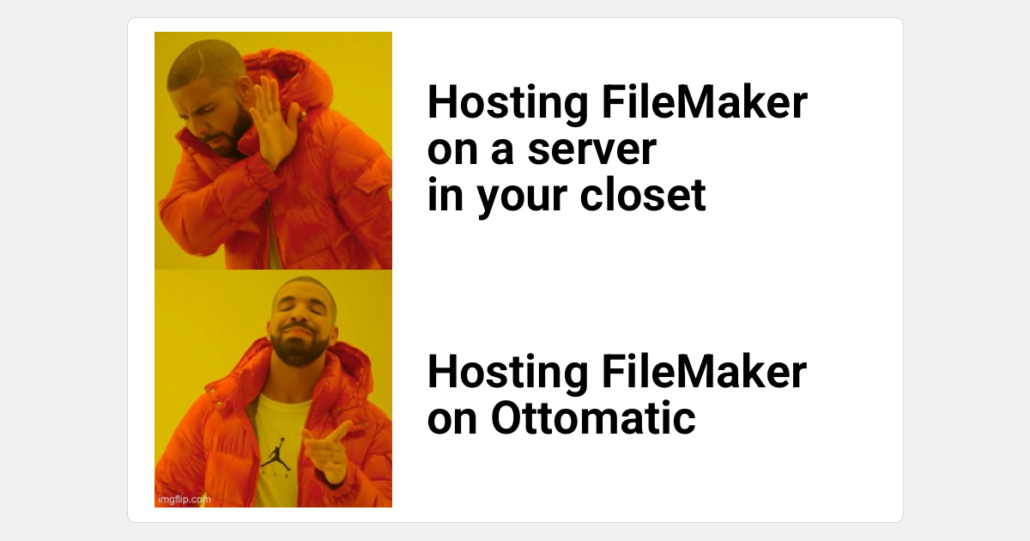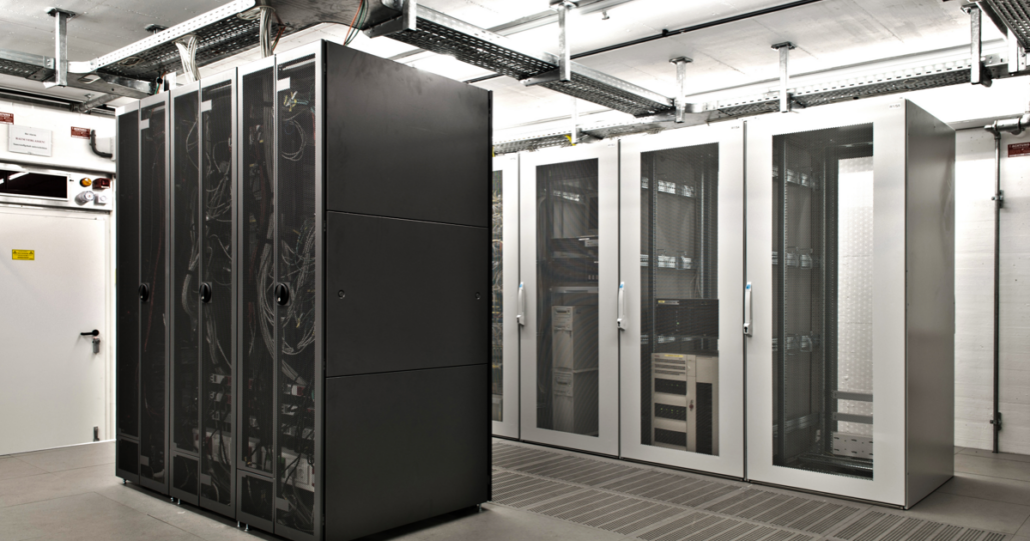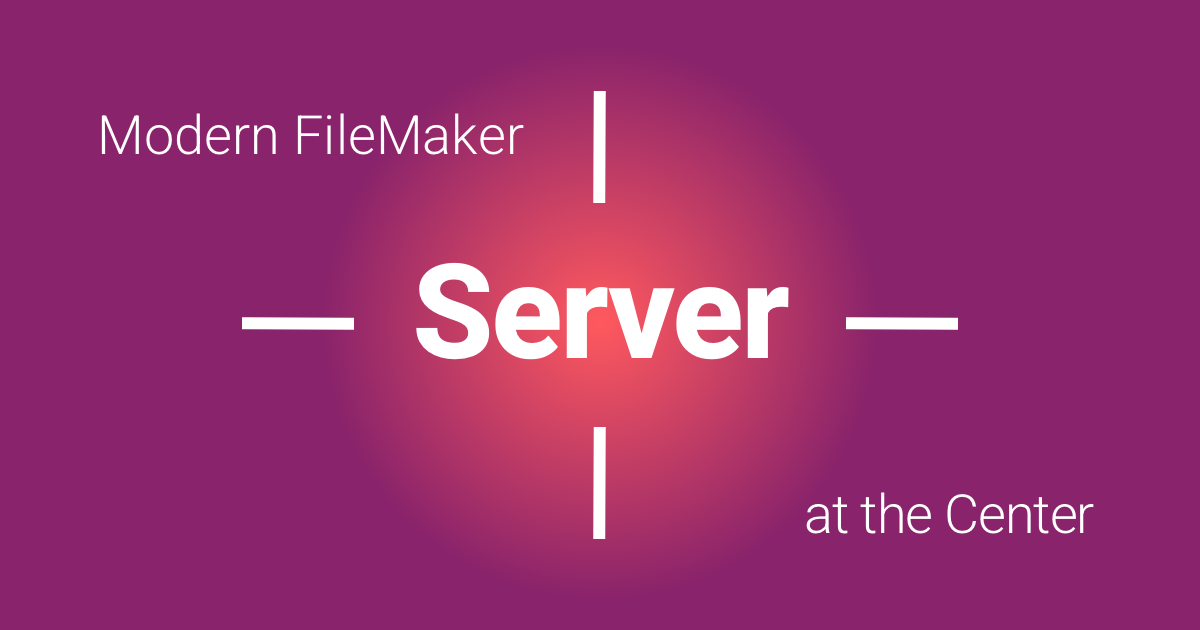Server 19.5 Released
Last week, Claris released FileMaker 19.5. Although there were features for FileMaker Pro and Go, Claris FileMaker Server got the lion’s share of the updates. We aren’t surprised by their focus, as the center of innovation and automation has shifted from the FileMaker file to the FileMaker server over the last few years. The Modern FileMaker Revolution is centered on the server.
Tired: Centered on the user and the file
For most of its history, FileMaker users and developers focused their attention on the FileMaker file. That is what people saw, where they entered data, where they pushed buttons and made things happen.
FileMaker Server’s job was to store data in those files and make the files available to other FileMaker users first over LANS, then over the WAN, and finally on the internet. Yes, there have been integrations and web publishing with FileMaker for a long time, but the focus remains on the file as “the thing where everything happened.”
What problem did this solve? Well, this phase of the FileMaker history revolved around storing and sharing data that used to be on paper forms, with some amount of custom business automation and logic. Sharing remained mostly within an organization.
The internet and the API economy brought about access to relatively cheap SaaS applications. Businesses and organizations now have access to what amounts to expert systems to handle parts of their business without having to bear the cost of building or maintaining them. The result was an explosion in the number of “apps” companies started using to run their business.
Now we have a new problem. How would we automate, integrate, and consolidate the data from these different apps? Welcome to today, where every business now needs to solve this problem. An approach that centers on files that may or may not be available on the internet and requires users to take action for anything to happen isn’t going to cut it.

Wired: Centered on automation & the server
Today, businesses have a custom application network that lives in the cloud. Apps always talk to each other using internet standards like JSON, REST, and OData. They send events to other systems signaling that something has changed, and those systems are acting on those changes.
Custom business logic is coded into apps and services that run in the cloud, often automatically. It is this custom automation and integration logic that becomes the core digital asset that a company has. Think Slack messages that alert you about new support tickets created; customer forms that kick off invoices; delivery notices from 3rd party shipping companies that update order statuses.

Infrastructure Matters
What does this mean for companies that have chosen the Claris platform? It means that FileMaker Server needs to be at the center now.
Your server should always be running to receive events from other apps. Your server needs to use standard communication protocols and data formats. Your server needs to be able to handle more of the data processing since there may not be a person involved to launch a client and press a button. It needs to reside firmly in the cloud. That is exactly what FileMaker 19.5 delivers, more of all of the above.
FileMaker Server 19.5 Changes
Here are some of the changes that make the FileMaker server an even better first-class web citizen.
Support for Ubuntu 20
Ubuntu is one of the most commonly used cloud server operating systems. Previous versions of FileMaker Server supported Ubuntu 18, which won’t be supported past 2023. Version 19.5 supports Ubuntu 20, which will be supported through 2025. Your server should keep up with newer technologies.
OData on all platforms
OData is an Internet standard format similar to SQL, but it runs over HTTP instead software drivers. It is now available on all platforms. Your server should understand commonly-used, standard formats.
More memory for server-side processes
Each Perform Script on Server and scheduled script process can now use up to 256MB of memory, up from 64MB. Heavily scripted processes running on the server need to be fast.
Parallel Backups
FileMaker Server can now intelligently group and backup files in parallel instead of running file backups in sequence. Backups should take less time, allowing the server to use processing power for other business-critical things.
Experimental Multithread Server-Side Scripts
This feature is not on by default, but you can turn it on and gain access to the ability to run Perform Script on Server from a script that was already running on the server. Usually, FileMaker is synchronous and single-process, but using this feature, you can write logic that can run on more than one process.
A word of caution, if you aren’t careful with this feature, you could spin up many virtual FileMaker Clients. Each new PSOS call will start a new one. So be careful not to overwhelm your server.
Even though this feature is experimental, it’s a step in the right direction. With some testing and feedback, this feature may eventually increase processing speed and more processing power on your server.
Ottomatic can help
If all this server stuff sounds great, but you don’t want to be responsible for maintaining the critical infrastructure that your FileMaker servers should have, we can help. Ottomatic is a hosting platform designed specifically for being the center of your custom application network. It is powered by Otto and available worldwide in a data center near you.

